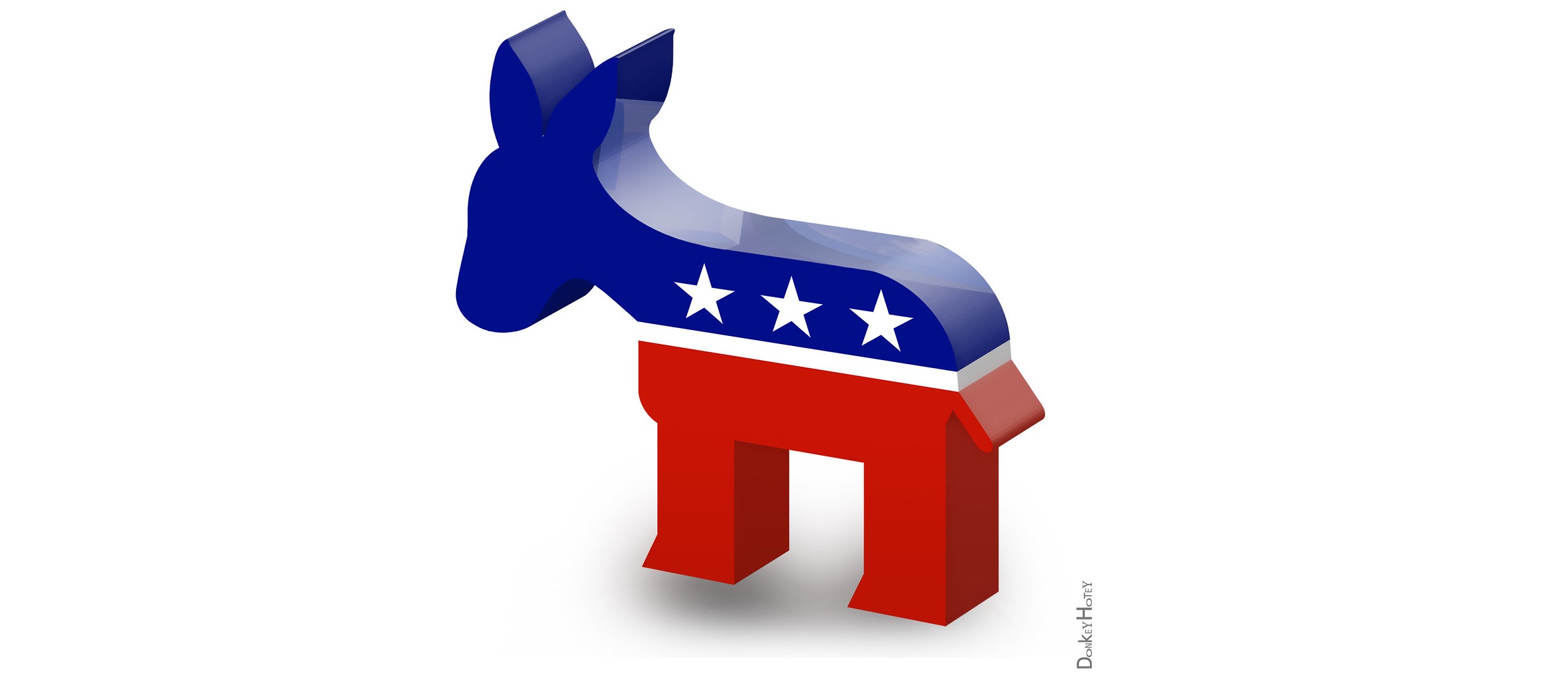Consumption
Addiction and the “Sovereign Individual”
Photograph: Red Velvet Cake, prepared by Waldorf Astoria New York. Photo credit: Hennem08 | CC3.0, Wikimedia Commons.
Introduction
The resources below highlight the physical, psychological, and spiritual impacts of consumption, in light of the demonstrated inability in secular Western culture to restrain oneself. We have addiction to gluttony and “freedom,” which is a problem for the notion of the “sovereign individual.” This confirms Jesus’ warnings about consumption and covetousness, Paul’s warning about “the belly,” and the older Jewish and Christian concern about idol worship and the consuming of something forbidden or unwise.
Conversation Stations
These are the images used in artistic physical displays. They are survey questions and conversation starters that are topically and thematically organized. They demonstrate how Jesus is relevant to each topic or theme. You can also just view the images on your device. If you would like, see all our Conversation Stations; below are the ones that relate to the topic of Desire.
Find Your Heart's Desire? (and instructions and theological essay)
Is a Good Friend Hard to Find? (and instructions and conversation tree)
What Story Do You Live In? (and associated message)
Does the Good Outweigh the Bad? (and instructions)
Whose Justice? (and instructions and Christian Restorative Justice Study Guide)
Whose Justice? for Harvard Law School
What Can We Do About Evil? (and instructions and conversation tree) and smaller version and brochure version
Other Christian Resources on Consumption and Addiction
Richard Beck, Addiction and Modernity, Part 1: The Addict as Prophet. Experimental Theology | Substack, Sep 5, 2023.
Richard Beck, Addiction and Modernity, Part 2: Making Something Matter in a World Where Nothing Matters. Experimental Theology | Substack, Sep 6, 2023.
Richard Beck, Addiction and Modernity, Part 3: An Underwhelming and Overwhelming Life. Experimental Theology | Substack, Sep 7, 2023.
Richard Beck, Addiction and Modernity, Part 4: Lonely People Make Good Addicts. Experimental Theology | Substack, Sep 6, 2023.
Messages and Resources on Consumption
Future Writings:
Tension Among the Three Factors of Production: Capital Abusing Land and Labor (TBD)
Addicted to Oil and More: Why Do We Need More Economic Growth? (TBD)
Other Resources on Consumption
The Corporation, a documentary about the history of corporations and the problems we have with them
Why We Fight, a documentary about the corrupting ties between the U.S. military and corporations
The Inside Job, a documentary about the financial industry and the economic collapse of 2008
Robert Glennon, Unquenchable: America's Water Crisis and What To Do About It (2001)
Kevin Phillips, Wealth and Democracy: A Political History of the American Rich (2003)
Kathleen D. Vohs, Nicole L. Mead, Miranda R. Goode, The Psychological Consequences of Money (Science, Nov 17, 2006)
David Harvey, The Crises of Capitalism: "Capitalism Never Solves Its Crises; It Moves Them Around Geographically" (video, Apr 26, 2010)
The Unbroken Window, Markets "Force" the Poor to Sell Things (blog, Nov 20, 2009) a good thought exercise about the limits of markets, and their effects
Alex Prud'homme, The Ripple Effect: The Fate of Freshwater in the Twenty-First Century (2011)
Greg Palast, Mitt Romney's Bailout Bonanza: How He Made Millions from the Rescue of Detroit (Democracy Now, Oct 18, 2012)
Think By Numbers, Government Spends More on Corporate Welfare Subsidies than Social Welfare Programs
Tanner Colby, Some of My Best Friends Are Black: The Strange Story of Integration in America (2013)
Michael Moss, The Extraordinary Science of Addictive Junk Food (NY Times, Feb 20, 2013)
Michael Mudd, How To Force Ethics on the Food Industry (NT Times, Mar 17, 2013)
Larry Gross, Our Modern Day Addiction to Technology and Propaganda (Truthdig, Apr 5, 2013)
Noam Chomsky, The Corporatization of the University (youtube video, Jul 12, 2013)
Dr. Dwight Lundell, World Renowned Heart Surgeon Speaks Out on What Really Causes Heart Disease (My Science Academy, Aug 19, 2013)
Oracle Talk, 10 Foods Sold in the U.S. That Are Banned Elsewhere (Oracle Talk, Sep 5, 2013)
John Oliver, Last Week Tonight: Sugar (video, Oct 26, 2014)
Marcus Bleasdale, Conflict Minerals: Minerals in Our Electronics Have Bankrolled Unspeakable Violence in the Congo (National Geographic, Oct 2013)
Ross Douthat, Pot and Jackpots (NY Times, Nov 2, 2013)
Eli Saslow, Too Much of Too Little: A Diet Fueled by Food Stamps is Making South Texans Obese but Leaving Them Hungry (Washington Post, Nov 9, 2013)
Joe Stiglitz, The Insanity of Our Food Policy (NY Times, Nov 16, 2013)
Mark Hyman, Fat Does Not Make You Fat; Sugar Does (Huffington Post, Nov 26, 2013)
Kali Ma, Humanity in Flux: Would a Species that Recognizes its Own Worth Be Actively Destroying Itself? (The Hampton Institute, Dec 12, 2013)
Yanis Varoufakis, Bitcoin and the Dangerous Fantasy of 'Apolitical' Money (Truthdig, Dec 26, 2013)
Brian Leiter, American Law Schools: The New Economic Realities (Dec 29, 2013)
David Dayen, 2013 Best in Wall Street Accountability - Fantasy Edition (Salon, Jan 1, 2014)
Patrick J. Deneen, Experiments in Living: John Stuart Mill's Liberalism Emancipates the Powerful from Custom's Restraints—and Ordinary Americans Suffer (The American Conservative, Jan 16, 2014)
John Stoehr, How Pope Francis Challenges the Right (and Left) (The American Conservative, Jan 16, 2014)
Gregory Ciotti, Is Your Brain Truly Ready for Junk Food, Porn, or the Internet? (Sparring Mind blog)
Beth McMurtrie, Why Colleges Haven't Stopped Binge Drinking (NY Times, Dec 14, 2014)
Barbara Sadick, Scientific Team Sounds the Alarm on Sugar as a Source of Disease (Medical Press, Jan 2, 2015)
Ben Farmer, Jamie Oliver: Sugar Can Destroy Lives and Should Be Taxed Like Tobacco (The Telegraph, Jan 3, 2015)
The Sugar Science (website)
Melissa Locker, This Place Just Made it Illegal to Give Kids Too Much Screen Time (Time, Jan 26, 2015)
Fresh Air, Why Teens Are Impulsive, Addiction-Prone And Should Protect Their Brains (NPR, Jan 28, 2015)
Carolyn Gregoire, This is What Sugar Does To Your Brain (Huffington Post, Apr 6, 2015)
Tia Ghose, In Addition to Regret, Tattoos Can Pose Serious Health Risks (Huffington Post, May 27, 2015)
Angela Garcia Combs, Dear President Carter (Huffington Post, Aug 24, 2015) about his moral leadership
German Lopez, Imagine if the Media Covered Alcohol Like Other Drugs (Vox, Jun 15, 2015)
Abraham Riesman and Jesse Singal, This Is Your Brain on Advertising: Why Kids Are So Vulnerable to Marketing (NY Mag, Nov 3, 2015)
Ollie McAteer, Cocaine Can Cause the Brain to Eat Itself (Metro UK, Jan 18, 2016)
Thomas Frank, How the Democratic Party Created a Liberalism of the Rich (In These Times, Mar 29, 2016)
Connor Kilpatrick, Burying the White Working Class (Jacobin Magazine, May 13, 2016) Liberal condescension towards white workers is code for a broader anti-working class agenda
Raj Patel and Jason W Moore, How the Chicken Nugget Became the True Symbol of our Era (The Guardian, May 8, 2018) when you turn the natural world into a profit-making machine
Farhad Manjoo, America’s Cities Are Unlivable. Blame Wealthy Liberals (NY Times, May 22, 2019) re: California politics, single occupancy zoning laws, and resistance to change
Sean Illing, Capitalism Is Turning Us Into Addicts (Vox, Oct 19, 2019) “How Big Business shapes our habits and desires”
Kurt Andersen, How Liberals Opened the Door to Libertarian Economics (NY Times, Sep 11, 2020) “Milton Friedman’s free-market ideas found favor in a free-love era and helped redirect the country toward the right. The aftershocks of his radical arguments are still being felt today.”
Catherine Guthrie, First, Their Breast Implants Made Them Sick. Then They Were Hit with the Bill. (Cosmopolitan, Aug 18, 2020) “Inside the wildly expensive, endlessly frustrating experience of trying to get implants removed when your health is on the line.” Overconsumption and the alteration of the self. Helpful stats on cosmetic surgery and its impact.
Saagar Enjeti, Wall Street, Big Businesses Go ALL IN For Biden, Democratic Party (Rising | The Hill, Oct 1, 2020) the Chamber of Commerce’s endorsement of Democrats
Libby Hattersley et.al., Taxes on Sugar-Sweetened Beverages: International Evidence and Experiences. World Bank, Oct 2020.
Saagar Enjeti, The Coming Bill For The Massive Cost Of Lockdowns (Rising | The Hill, Mar 24, 2021) culturally, coming out of the COVID pandemic, we are about to experience an economic boom and consumption increase to make ourselves feel better. Saagar surveys alcohol and drug use, weight gain and likely health problems, etc. See also Elyse R. Grossman, Sara E. Benjamin-Neelon, and Susan Sonnenschein, Alcohol Consumption during the COVID-19 Pandemic: A Cross-Sectional Survey of US Adults (International Journal of Environment Res Public Health, Dec 9, 2020)
Second Thought, The Truth About Food Insecurity (Second Thought, Apr 5, 2021) shows structural and psychological problems that lie behind how we distribute food resources
BBC, UK Doctor Switches to 80% Ultra-Processed Food Diet for 30 Days 🍔🍕🍟. BBC, May 28, 2021. “Dr Chris van Tulleken embarked on an ultra-processed 30 day diet to uncover what effect it has on our bodies, the results leave him and the scientists in shock!”
Krystal Ball, Groundbreaking Study Proves Culture Wars Kill Class Politics (Breaking Points, Jun 7, 2021) highlights a very important study by Thomas Picketty et al. about Portugal and Ireland taking an economically leftist, working-class oriented, progressive turn from the 2008-09 crisis, and thereby avoiding the rightward, antidemocratic fascist currents of other countries. This has major implications for the corporate Democrats abandoning the working class.
Krystal Ball and Saagar Enjeti, VA Gov Race Shows How Suburban Libs Destroyed Dem Party (Breaking Points, Jun 10, 2021) compares Virginia and Nevada on politics. In VA, suburban people make up the Democratic Party, but in NV, unionized workers do.
Gary Dorrien, Bridging the Old Left and New Left. Bias Magazine, Jun 29, 2021. Dorrien explores the “old left” rooted in the work of Eugene Debs and continuing through Michael Harrington, whose activism was inspired by his Catholic upbringing, and Dorothy Day and the Catholic Worker Movement, and the labor unions such as the AFL-CIO. The “new left” was the Civil Rights Movement, represented by organizations like SNCC and Tom Hayden. Harrington’s old left instincts were an ill-fit with the new left.
Kate Julian, America Has a Drinking Problem (The Atlantic, Jul-Aug, 2021) fascinating colonial and early US history of alcohol consumption, compared with other cultures and civilizations. Also, in the US, women are more likely than men to be depressed/anxious and use alcohol in relation. Use of alcohol increased during the COVID-19 pandemic.
Jonathan Haidt, The Dangerous Experiment on Teen Girls (The Atlantic, Nov 21, 2021) “The preponderance of the evidence suggests that social media is causing real damage to adolescents.” “Something terrible has happened to Gen Z, the generation born after 1996. Rates of teen depression and anxiety have gone up and down over time, but it is rare to find an “elbow” in these data sets––a substantial and sustained change occurring within just two or three years. Yet when we look at what happened to American teens in the early 2010s, we see many such turning points, usually sharper for girls.”
Stephen Marche, America’s Gambling Addiction is Metastasizing (The Atlantic, Nov 26, 2021) “The most straightforward reason for the surge in gambling is a change to the law: In 2018, the Supreme Court struck down the Professional and Amateur Sports Protection Act, opening the door to online sports betting across 21 states. As a direct result, sports-betting revenues grew 69 percent from 2019 to 2020 and another 270 percent during the first quarter of 2021. Total gambling revenues in the U.S. are set to break the $44 billion mark this year, approaching the size of the market for movies, books, and music combined.”
Thom Hartmann, Greed Can Unleash Waves Of New COVID Variants? (Thom Hartmann Program, Nov 29, 2021) considers how private patents by big pharma prevents mass vaccinations. He surveys spiritual, philosophical, and historic condemnations of greed. Hartmann condemns “Reaganism” or neoliberalism which said that greed is good.
Michael Tomasky, The Solution to the Democrats’ Leftism Problem (The New Republic, Nov 29, 2021) “The party’s elites and activists are more progressive than its base. Here’s how to close that gap.” “It’s an undeniable fact that Democratic Party elites, progressive activists, foundation and think-tank officials, and most opinion journalists are well to the left of the party’s rank and file. In 2018, for example, Pew found that 46 percent of Democrats identified themselves as liberal, 37 percent as moderate, and 15 percent as conservative (Republicans, in contrast, were far more conservative overall than Democrats were liberal). So let that sink in: More than half of the party’s rank and file isn’t even liberal, let alone progressive-left.”
Rachel Rueckert, The Hardest Part of Being Sober is Explaining It to You. Here’s Why You Shouldn’t Ask. Washington Post, Dec 27, 2021.
Sylvie Gilman and Thierry de Lestrade, Obesity and Corporate Greed. Deutsche Welle, May 26, 2022. “Doctors predict that by 2030, half of the world's population will be overweight or obese. An epidemic of obesity is causing a rapid rise in diabetes, cardiovascular disease, and cancer. It's becoming the biggest health challenge worldwide. Why has no country managed to stop this epidemic? The food industry and government authorities say it's due to a lack of individual self-discipline. Is this true? Or is it the result of collective failure -- a symptom of a liberal society that abhors obesity, yet produces people who are overweight. Is society itself to blame for this situation?” Multinational food corporations making sugar products and refined flour products have taken over our industrial food system for four decades.
DW Documentary, Junk Food, Sugar and Additives - The Dark Side of the Food Industry. DW Documentary, Jun 30, 2023. “40% of the global population is overweight or obese. Highly processed industrial foodstuffs are largely to blame. But food companies continue to focus on products that are addictive. Sugar is one of the strongest "drugs” and can get consumers really hooked. Food giants know this only too well. That’s why they use sugar, fats and flavor enhancers to encourage people to buy their products and boost their profits. The result: more and more people around the world are overweight or obese. Illnesses such as diabetes and cardiovascular disease are becoming more prevalent. What can be done to change or even put a stop to the food industry’s strategies?”
Jordan Harbinger, Narco-Diplomacy in The Middle East: Captagon (The Dr*g You Haven't Heard of Yet). The Jordan Harbinger Show, Aug 7, 2023. Captagon is a methamphetamine and performance enhancer, but who profits from it is troubling: Syrian regime; Hezbollah; other mafia groups.
Aaron Bastani, American Big Tech Has Enslaved Us: Aaron Bastani Meets Yanis Varoufakis. Novara Media, Oct 8, 2023. This has major implications for Christian ethics. Varoufakis argues that technological and financial power has combined as "feudal techno-capitalism" around cloud capital. For example, Tesla is a cloud company, collecting data on its drivers, and is now joining that data with Twitter's data, which is disturbing. Varoufakis also argues that the geopolitical tension between the US and China is in large part the result of competing visions of techno-finance.
Jonathan Stempel, Diane Bartz and Nate Raymond, Meta's Instagram Linked to Depression, Anxiety, Insomnia in Kids - US States' Lawsuit. Reuters, Oct 25, 2023.
Desire: Topics:
Here’s how to understand this section on Desire: We believe Jesus’ own human desires, journey, and teaching are normative for human becoming, so we pursue Christian Spiritual and Emotional Formation to help us better understand pastoral, relational, and communal questions that come up as we pursue Jesus’ vision for human flourishing. We stay aware of research and reflections on Human Moral and Emotional Development. Many insights into the mind-brain-body connection in Neuroscience and Epigenetics and Sleep and Rest are helpful. We follow research on Friendship and Happiness, track resources about Greed and How Money Makes Us More Greedy, point out in Consumption how capitalist overconsumption and addiction challenge the notion that we are “sovereign individuals,” maintain the biblical critique of Interest Rate Lending and Debt as a way people fund overconsumption and entrap themselves, reflect on Sex as part of human moral and emotional development; we critique the Sex Industry for how it distorts us. Human Destiny itself can be understood through the lens of desire.
Christian Restorative Justice Critique of the Left: Domestic Policy Topics:
This page is also cross-listed in the section on Christian Restorative Justice Critique of the Left, which broadly engages the following topics: Bioethics discusses the impact of technology on conception and birth, enhancement and therapeutics, and aging and death; Consumption challenges the notion that we are “sovereign individuals” who are exercising free choices; Government Corruption spotlights political compromises and dealings contrary to the public good; Immigration highlights the complicity between Left and Right on stalling immigration policy reform; Media spotlights failures of, and possible fixes to, left-wing or left-leaning media; Power and Politics highlights the impact of racial considerations and racism on political campaigns, voting rights, public investments, and other political procedures; Relational Personhood examines how “individualism” fails to comprehend the importance of healthy relationships and communities in human development; Race examines the impact of white supremacy on virtually every aspect of American life; Religious Tolerance focuses on how Christian faith produced a difference between church and society, and argued for religious toleration from its earliest days; Secularized University examines the moral and intellectual problems produced by the cultural Leftism of individualism; Sex Industry documents the moral and policy challenges of treating sex as a commodity, which the majority of people on the leftward side of the political spectrum tend to do.
Christian Restorative Justice Critique of the Left: Philosophical Influences:
We critique philosophical influences behind some secularists on the left: Myth of Christian Ignorance responds to the accusation that Christian faith led to a “dark ages” and technological backwardness; Secular Liberalism critiques the assumption that political and moral values can be sustained and nurtured by political procedures themselves.




























